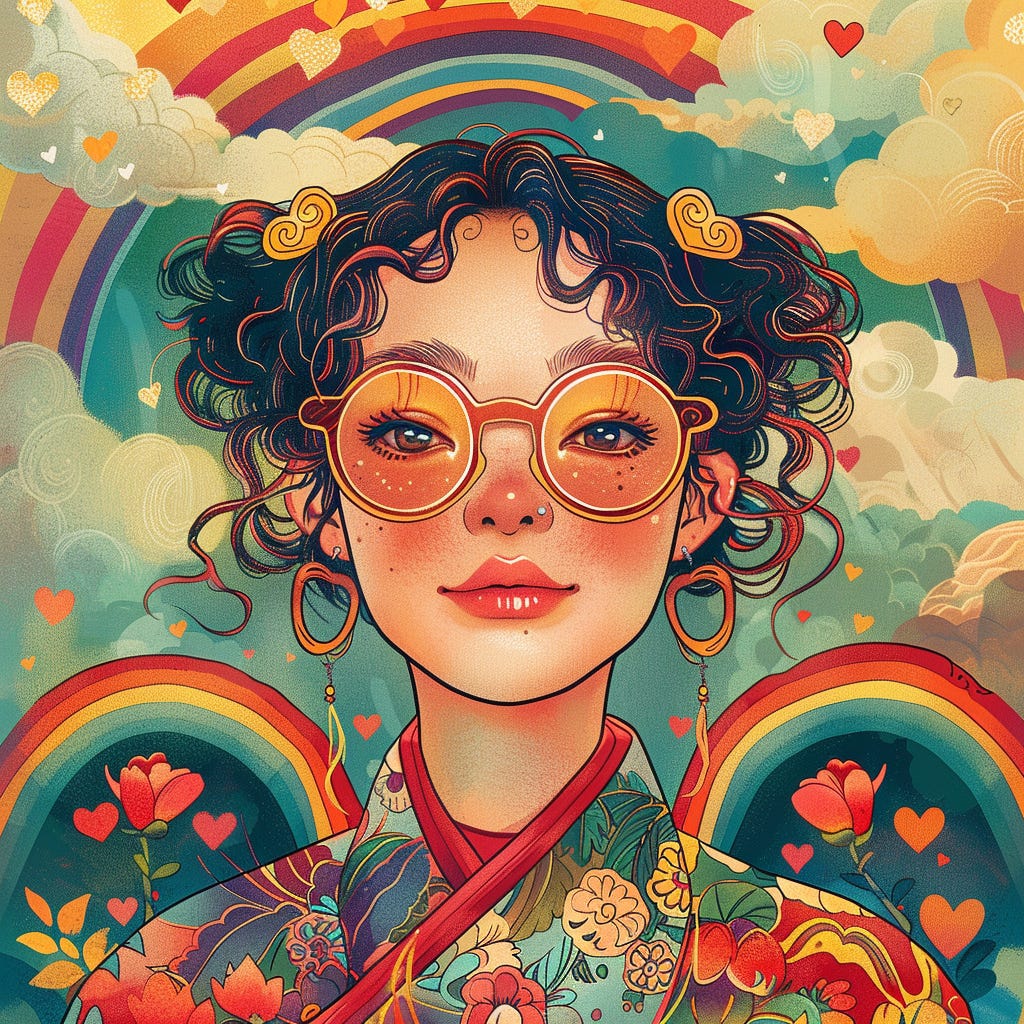May You Be Happy: Mettā Medicine for a Divided World
in which I try to solve the culture war with a bumper sticker
Several years ago, I joined Tasshin’s "Build a Meditation Habit" course. It turned out to be a clever disguise for something deeper: Mettā.
Mettā, which roughly translates to "loving-kindness," is a practice of deliberately cultivating warm and caring thoughts toward yourself and others.
The course was perfect for me:
What I thought I needed was to be BETTER. Better meant having a meditation habit.
But what I actually needed was LOVE: I needed to love myself and others. After all, the only reason I wanted to be better was because I wanted to be lovable.
The course planted a seed of Mettā that would later bloom in unexpected ways. During moments of anxiety or judgment, my mind would return to a simple Mettā mantra: "May you be happy." These words became an oasis, offering refuge from critical thoughts.
After the course, I connected with Tasshin’s micro-culture, a network of people where the norm is being kind, generous, and loving. People rooted for each other, asked meaningful questions, and shared resources they found helpful.
I called it “Kind Culture.” I loved it. It felt healing to my inner teenager who buried her soft heart beneath layers of irony and sarcasm in an attempt to be “cool.”
This micro-culture served as a safe space where I could practice being authentic and kind. Eventually I began carrying these ways of being beyond the community, becoming a little ambassador of Kind Culture.
When I moved back to the US to live in the woods, I had to get a car. Excited about fueling it with sunshine, I bought a used Tesla. I was grateful to Tesla for making electric cars a thing and opening a manufacturing plant near where I grew up—a place I thought would never see manufacturing return.
But unknowingly I had stumbled into a culture war. The very people I thought would be excited about green cars and local manufacturing disliked Teslas because they disliked the CEO. And then other people seemed upset that I liked to go the speed limit on country roads.
And I was driving around a swing state where the Harris and Trump signs yelled at each other from across the road. It felt like I was trapped in a maze of people yelling at each other.
I started saying “May you be happy” in my head, aiming the blessing at the cars and houses and people I passed.
“If only I had a bumper sticker that could say this, too,” I thought.
So I made one. I hoped the message and design would be received in a way where it wouldn’t be taken as another identity signal: “Oh, you’re one of those people.” I wanted people to absorb it as love, a love that transcends whatever stories we’ve found ourselves locked in.
I imagined the love beaming out of the bumper sticker. Loving everyone, no matter what state of mind they are in, no matter what their beliefs.
I hoped it would be a little oasis where we could rest beyond our ideas of right and wrong.
Healing a cultural rift is a bit much to ask of a bumper sticker, but it’s not too much to ask of love.
As far as I can tell, love is the only solution to hate.
I am reminded of a story of a tribe where, if a tribe member starts acting destructively, they don’t punish them but surround them with love, helping them because they see that they are sick, because they know that person would not act like this if they were well.
Anyway.
When I was designing the bumper sticker, I tried very hard to make it perfect.
But then I relaxed. When I relaxed I made these holographic stickers. They seem to resonate with people more. I think that says something about creative work.
If you want a holographic sticker or a bumper sticker, let me know and I’ll mail you one.
May you be happy. 💗






I love this 💖 And I love you 💞
OMG I LOVE THEM
i'm gonna be in one place all of january, when i figure out the address to mail to i'll let you know, i want the big one for my car and the little one for my computer :)